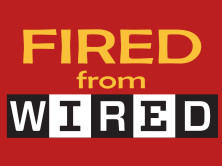
TechCrunch received stolen Twitter documents from a hacker. They write, "it certainly was unethical, or at least illegal or tortious, for the person who gave us the information and violated confidentiality and/or nondisclosure agreements. But on our end, it's simply news."
eLearnspace reports, “TechCrunch received over 300 documents from an individual who had hacked into Twitter’s network…The information ranges from silly (projections of users) to somewhat serious (revenues).” eLearnspace asks: “Should bloggers publish stolen information?”
It was ”Hacker Croll” who apparently hacked into a Twitter associate’s private email account and sent the resulting pilfered Twitter documents on a zip file to TechCrunch, which describes itself as “a weblog dedicated to obsessively profiling and reviewing new Internet products and companies.” TechCrunch soon posted an announcement that they “will publish some of the confidential Twitter documents we’ve been forwarded.” They explain, “The zip file contained 310 documents, ranging from executive meeting notes, partner agreements and financial projections to the meal preferences, calendars and phone logs of various Twitter employees.”
TechCrunch writes in their post, “There is clearly an ethical line here that we don’t want to cross, and the vast majority of these documents aren’t going to be published, at least by us. But a few of the documents have so much news value that we think it’s appropriate to publish them.” These include “documents showing financial projections, product plans and notes from executive strategy meetings. We’re also going to post the original pitch document for the Twitter TV show that hit the news in May, mostly because it’s awesome.”
After their announcement, TechCrunch found itself in a whirlwind of controversy that included hundred of comments, warring opinions on numerous blogs and discussions with Twitter’s attorneys.
TechCrunch wrotes that it is morally okay for them to publish documents…it is only the hacker who is unethical.
They write, “it certainly was unethical, or at least illegal or tortious, for the person who gave us the information and violated confidentiality and/or nondisclosure agreements. But on our end, it’s simply news.”
TechCrunch completes the thought, “That doesn’t mean we are entitled to do anything we like in order to get to that information. But if it lands in our inbox, we consider it fair game.”
Boomtown blogger, Kara Swisher, begs to differ. She writes: “Indeed, it is unequivocally wrong to publish documents you know or think were stolen or hacked, because it is aiding and abetting that theft…there should be no difference between ‘Web’ journalism and the old-fashioned journalism–acting as if the former gets a ‘process journalism’ (what a crock!) pass at standards and ethics that should be eternal and unwavering, no matter the medium.”






